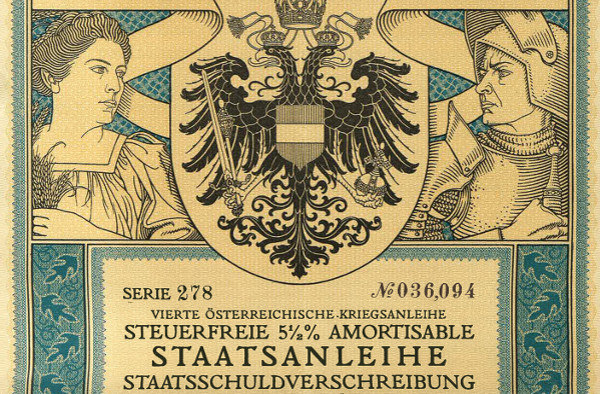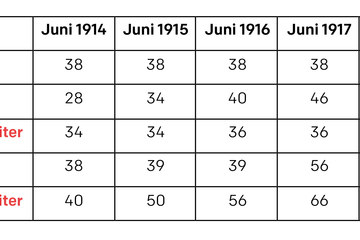The difficulties of financing the war and inflation
The Austrian economist Kurt W. Rothschild’s comment that the monarchy in the last stage of the war was “no longer a solvent enterprise” referred not only to the problems of material production but also to the condition of state finances in Austria-Hungary. The suspension of the Banking Act in August 1914 meant that the state could borrow directly from the central bank. From this date on, loans to the state increasingly formed the ultimately only fictitious bank cover for the money in circulation. The interaction of public debt, increasing money in circulation and a considerable rise in demand for armaments, together with the shortage of food supplies, rapidly led to inflation.
Translation: David Wright






